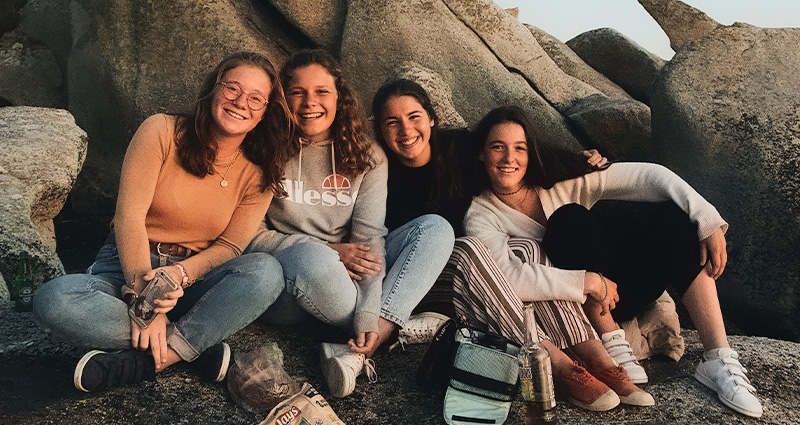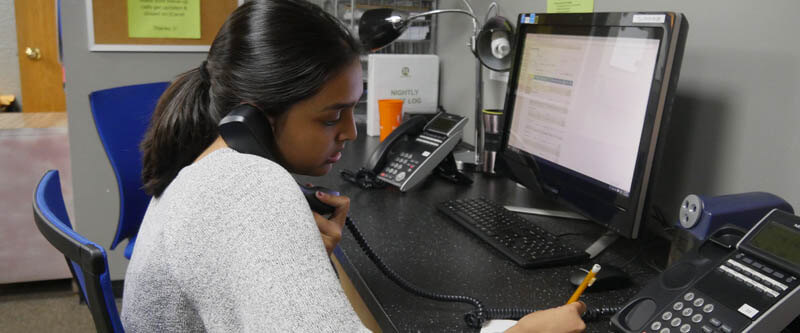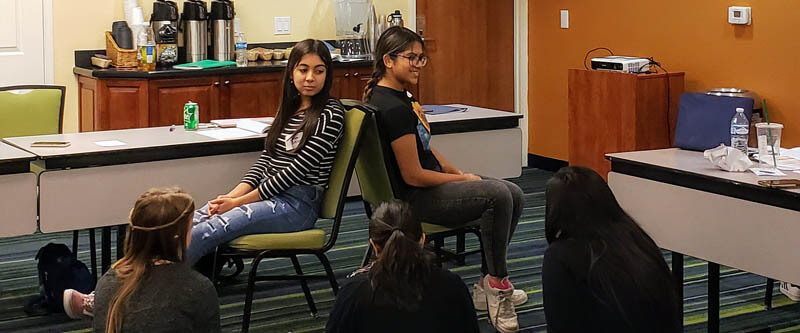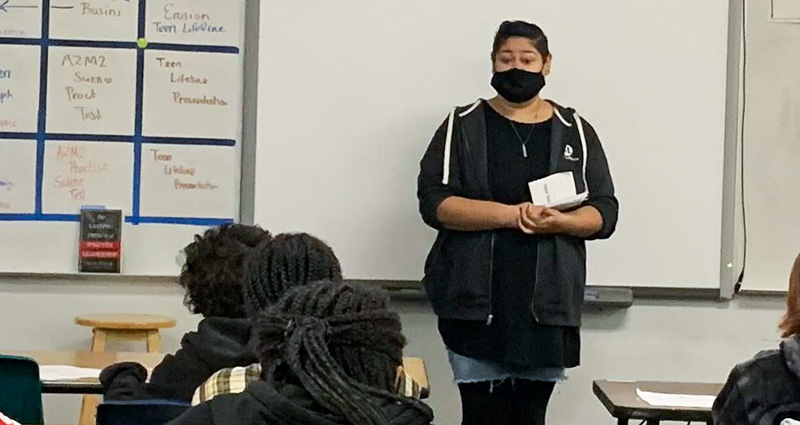
Working toward a world where all youth possess hope.
The mission of Teen Lifeline is to prevent teen suicide in Arizona through enhancing resiliency in youth and fostering supportive communities.
Our work supports the vision of a world where all youth possess a sense of connectedness and hope for their future.
Teen Lifeline provides essential support for teens throughout Arizona. While the suicide prevention hotline is at the heart of everything we do, Teen Lifeline services also include suicide prevention education, community outreach to inform everyone in a teen’s life about available resources, and life skills development for teen volunteers.
Answering the Call
The biggest factor separating Teen Lifeline from other crisis hotlines is the people who answer the phone. When teens want to talk about their problems, they are most likely to turn to other teens.
Since 1986, Teen Lifeline volunteers have answered more than 315,000 calls and texts, providing hope and intervention to hundreds of thousands of teens in crisis.
Our Story
In 1985, the controversial film Surviving, starring Molly Ringwald, aired on prime-time television, launching a national conversation about teen suicide. At that time, Arizona ranked second in the nation for its teen suicide rate.
Local mental health leaders developed Teen Lifeline as an innovative solution to address teen suicide in the Phoenix area.
- 1986: Teen Lifeline was founded as a school-based program at Central High School in Phoenix. A McKesson Foundation grant helped Phoenix South Community Mental Health Center launch the program.
- 1988: Recruitment of teen volunteers from all over the Valley began.
- 1991: Teen Lifeline began serving the entire state of Arizona through a toll-free number, thanks to a grant from the Marshall Fund of Arizona.
- 1996: The hotline service spun off from Southwest Behavioral Health and merged with TERROS Health.
- 1999: Teen Lifeline received its 501(c)(3) nonprofit designation from the Internal Revenue Service.
- 2000: Teen Lifeline became a free-standing nonprofit organization.
- 2003: The organization received accreditation through the American Association of Suicidology—the first Peer Counseling Hotline to receive this distinction in the United States.
- 2012: Teen Lifeline launched its Facebook page as one of the early pioneers to provide teen suicide prevention awareness and education through social media.
- 2015: A new option was launched to help teens connect with peer counselors via texting on mobile phones. Additionally, Teen Lifeline’s School ID Initiative began years ahead of Arizona’s mandate, placing Teen Lifeline’s life-saving hotline information and a message of hope on the back of student IDs across Paradise Valley Unified School District.
- 2019: Signed by Governor Ducey on May 9, 2019, the Mitch Warnock Act requires all schools (public and charter) statewide to provide suicide prevention training to school personnel who work with students grades 6th through 12th. Teen Lifeline is a primary provider of these suicide prevention trainings.
- 2020: Teen Lifeline expanded its texting hours to provide services to home-bound teens during the COVID-19 pandemic.
- 2021: Teen Lifeline celebrated 35 years of providing help and hope! We have grown in size and impact, but our focus on preventing teen suicide remains steadfast through our three core programs.
- 2022: Teen Lifeline pilots Caring Contacts, the first program in the nation to support teens through the high-risk period of transition following a discharge from a mental health care facility using peer counseling.

Peer Counseling Crisis Hotline
Whenever the phone rings, we are given the chance to save a life.
Some callers need a listening ear or a shoulder to cry on. Others call as a last resort. No matter the reason, Teen Lifeline and our teen peer counselors are here 365 days a year to listen and help.
The free and confidential peer counseling crisis hotline answers calls 24/7, with texting and peer counseling 3 – 9 p.m. daily. Currently, our texting hours are extended Monday through Friday to 12 – 9 p.m. We partner with Solari for after-hours support.

Life Skills Development
The best experts on being a teen right now are teens themselves—that is one reason our peer-to-peer model is so effective. Teen Lifeline provides teen volunteers with the training to not only problem-solve with their peers on the hotline, but also to better handle stressors in their own lives. For many peer counselors, Teen Lifeline is their home away from home.
Each year, selected teens undergo the rigorous 72+ hour, three phase Life Skills training required to become a peer counselor, equipping them with communication skills, life issues education, decision-making skills, support services, and self-esteem enhancement. Once individually cleared to work the hotline by our Clinical Director, these teen volunteers confidently help other teens resolve problems ranging from relationship issues to abuse, self-injury, or suicide.

Prevention Services
Because teen suicide prevention requires the support of a well-informed community, Teen Lifeline works with schools, community organizations, businesses, and families to ensure all in a teen’s life are suicide aware.
Teen Lifeline workshops for parents, educators, and students provide education about suicide prevention, conflict resolution, stress, coping skills, grief, and increasing help-seeking behavior. Our programs are implemented by master’s level clinicians who are sensitive, competent, and trained in prevention and intervention methods that adhere to best practice standards.
Further, our School ID Initiative places our life-saving information in the hands of thousands of Arizona students on the back of their school ID. That way, students always have a connection of hope nearby.
